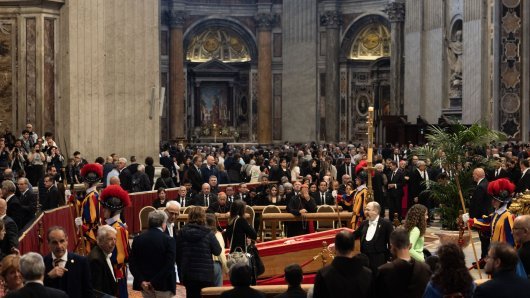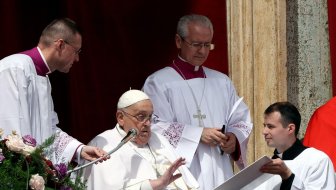The college of European commissioners fully supports the activation of Article 39 from Croatia's European Union accession treaty, which will formally happen in the next few days unless Croatia undertakes measures that would justify reconsidering this decision, the spokesperson of European Commission Vice President Viviane Reding said on Monday.
Vice President Reding, President Jose Manuel Barroso and Enlargement Commissioner Stefan Fuele informed the college about the situation and received full support for further action. If there are no developments in Croatia that would justify a reconsideration of the situation, the procedure envisaged in Article 39 of the Croatian accession treaty will be launched, spokeswoman Mina Andreeva told reporters.
The procedure is being launched because Croatia, in the Commission's assessment, breached the European Arrest Warrant (EAW) by passing a law, dubbed Lex Perkovic, which limits EAW application to crimes committed after August 2002.
Andreeva said the Commission had been very clear in the past month in its demand of a swift and unconditional amendment of the law in question so that Croatia could be aligned with the EAW, adding that in the absence of such action, the Commission would undertake the measures envisaged in Article 29 of the accession treaty.
She reiterated that the Commission expected a swift and unconditional change of the Croatian law, adding that while the word "swift" did not contain a deadline, that this did not mean that this should be done in a year, but without undue delay.
Asked which measures the Commission had in mind, Andreeva said she could not go into details and that this would be decided after consultations with the member countries.
This is about a betrayal of confidence, because if you are creating an area without borders within the EU, then you must make sure that crimes committed in one member country must not go unpunished, she added.
Andreeva went on to say that the current situation could not be compared to similar situations in the Czech Republic and Slovenia in the past. Both countries passed laws in contravention of the EAW, but had to change them following pressure from the European Commission.
The Commission asks of all countries to correctly apply the EAW. This happened in Slovenia and the Czech Republic, which changed their laws because the Commission has insisted on this. In any case, the situation in the Czech Republic or Slovenia is not comparable to the present-day situation in Croatia, because we now have a law aligned in 2010, when the Croatian government fought to align with EU rules, but three days before membership, it was changed, contrary to European legislation. The situation is quite different, said Andreeva.
Commission services are preparing a document for consultations with member countries. After they receive these letters, the countries have ten days to respond. The Commission does not need the decision of the member countries to activate the safeguard measures, because these are consultations after which decisions will be made on the sanctions against Croatia.
A diplomatic source said the sanctions would most probably mean the suspension of funding for preparations for the Schengen Area, or the introduction of post-EU accession monitoring, to which the Commission objected before Croatia joined the EU.
Croatia already received EUR 40 million for the Schengen preparations this year and is expected to receive EUR 80 million in 2014.
Article 39 enables the European Commission to undertake appropriate measures, within three years of a country's EU accession, at the request of a member country or on its own, and to define the terms and ways of enforcing them in the event of serious shortcomings in the transposition or implementation of EU legislation. The measures are not applied longer than necessary and are lifted when the shortcomings have been corrected.



































